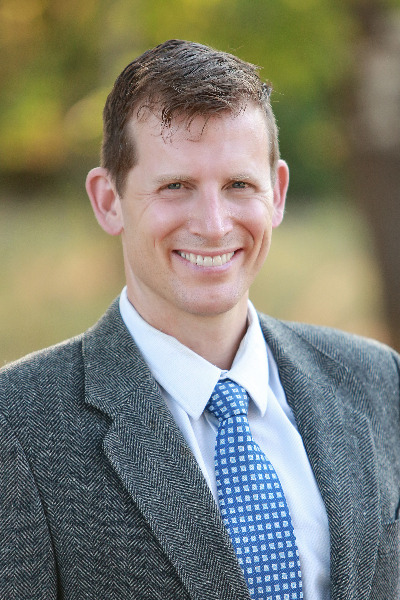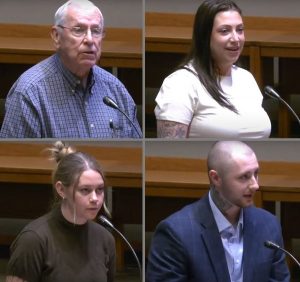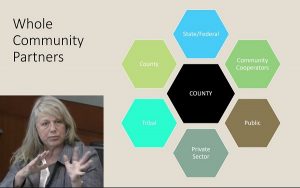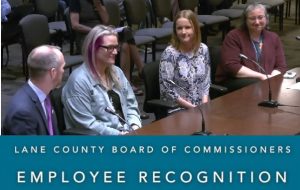Support for ‘our rascal’ leads to lack of trust in government
4 min read
by Rep. Marty Wilde
State Representative, House District 11
Hatred makes us our own worst enemy. When we hate the “other” so much that we cannot hear them and integrate their insights into our problem-solving, we stop making progress.
As I finish my third trip to Bosnia and Herzegovina, I see how the hatreds from their civil war almost 30 years ago prevent them from finding peace and prosperity. Their struggles show what we may become if we cannot overcome polarization and learn to work together in Oregon.
Prior to the Bosnian Genocide in the 1990s, the different ethnicities – Bosniaks (Bosnian Muslims), Bosnian Croats, and Bosnian Serbs – lived in peace and often intermarried. Marshal Josep Broz Tito, a Cold War autocrat born to a mixed ethnicity marriage himself, promoted this tolerance and strove to show respect to all cultures in the former Yugoslavia.
After his death in 1980 and the fall of the Soviet Union in 1991, political demagogues started stoking ethnic hatreds, leading to the dissolution of Yugoslavia, the deaths of around 101,000 people, and the displacement of roughly half the population of 4.4 million. (For comparison, this is slightly higher than Oregon’s current population of 4.3 million).
The civil war soon ground into a stalemate. In 1995, the Dayton Peace Accords achieved relative peace and agreement on an interim constitution with enforced proportional representation for each of the warring parties in the government. Now, almost 75% of the population supports the goal of joining the European Union and other international organizations, but inter-ethnic conflict remains a substantial barrier. One of my Bosnian friends explained, “The older generation of politicians benefits from prolonging the conflict.”
His words reminded me of the way I’ve seen extremist leaders in both of our major political parties in Oregon, and elsewhere in our country, stoke conflict rather than seek reconciliation.
When I first deployed to Bosnia with NATO in 2008, the senior local attorney who was my colleague there told me that, if NATO forces left, the factions would immediately resume killing each other, despite the passage of the Dayton Peace Accords more than a dozen years before.
When I returned in 2019 to teach a workshop on human rights to an interethnic military police unit, I attempted to use a scenario from the war to show the importance of seeing each other as human. I was immediately shut down. The students were not ready to hear it.
Last week, again working with an interethnic unit, I again saw how polarization in the ranks of senior politicians blocks reforms necessary to reduce corruption and improve governance. There, as here, hatred continues to paralyze progress. The consequences in Bosnia are profound; about a quarter of the population has given up and emigrated in the last 25 years.
In the US, we have also seen an increase in political polarization. Conservative Democrats and liberal Republicans have become endangered species. In 2014, the Pew Research Center found that 92% of Republicans held political values to the right of those of the median Democrat, up from 64% only two decades earlier. And the values of 94% of Democrats were to the left of the median Republican in 2014, up from 70% just 20 years before.
In Oregon, our closed primary system exacerbates these differences by allowing a small, politically polarized part of the electorate to decide in the primary who will proceed to the general election.
The US continues to polarize faster than other democracies. What does this mean in practical terms? Well, to quote an 1868 article from North Carolina, “We are forcibly reminded by these arguments of the Radicals of the reply of one of their party, in attempting to persuade a rather conscientious member to vote for a certain candidate whose character was none the best. ‘He is a great rascal,’ indignantly proposed the friend. ‘Ah! but he is our rascal,’ was the significant rejoinder.”
In Bosnia, the attitude that “our rascal” is better than “their rascal” and that the integrity of neither has any bearing on their qualifications for office has led the country to place 111 out of 180 countries ranked in perception of public corruption by residents, and its rank is continuing to fall.
The work of my team promoted the efforts of the military inspectors general (IG), who have helped the Bosnian military rise in perceptions of honesty while the rest of the government fell. Many of the conversations revolved around pushing other agencies to act on reports of corruption. This dedicated, multi-ethnic group works together to reduce polarization, increase accountability, and promote good government.
As in Bosnia, in Oregon the public perception of government legitimacy continues to fall. The gap widens between the public’s values and the values expressed by the actions of the political class. Countering that trend effectively will require a lot of work, but it starts with more people voting. When regular people choose candidates who believe in looking beyond party labels to find solutions to Oregon’s problems, those solutions are more effective and legitimate.
If you have not yet turned in your ballot, please do so. As of last Tuesday, one week before the deadline, less than 10% of voters had returned their ballots. When more people vote, we counter extremism and elect politicians who will work to heal Oregon’s divisions.
Contact Rep. Wilde by email: wildefororegon@gmail.com. Marty Wilde is a member of the Air National Guard. Use of his military rank, job titles, and photographs in uniform does not imply endorsement by the Department of the Air Force or the Department of Defense.



